Avian Health, Natural Pet Health
Raising chickens – the crucial steps to healthy flock
So, you’ve decided to raise chickens.
You know what you want out of your new venture, considered how much space you have for your hens and confirmed that you will be abiding by local laws.
The next step on your journey as a back-yard chicken carer is to make sure you have all your new flock will need to live healthy, happy lives. And this will depend somewhat upon the age of birds that you will be caring for.
Chicks, pullets or hens?
When looking to get your new flock off the ground (excuse the pun as chickens can’t actually fly!), a major choice you will need to make is whether to purchase mature hens, pullets or newly hatched chicks.
While tiny chicks are adorable and it’s incredibly rewarding seeing them grow into a mature, egg-laying hen, raising chicks also requires a lot more time, effort and money to ensure they have everything they need to grow and develop.
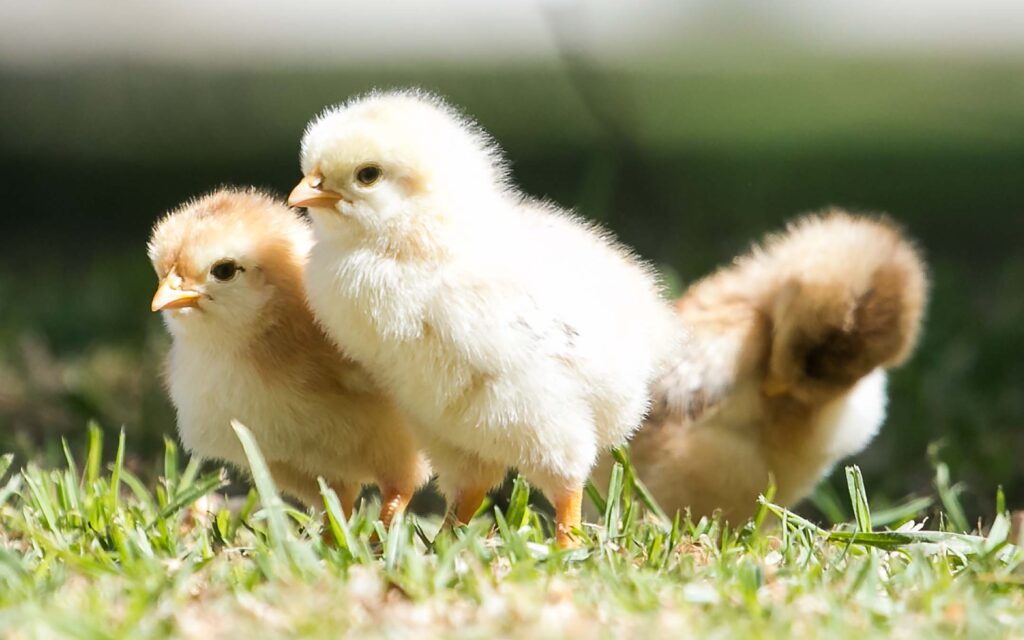
When looking to purchase new chicks, you will need:
- a safe, clean, draft free room where they will be able to relax and feel safe
- heat lamps
- litter or shavings for the floor
- feeders and chick starter feed
- waterers and clean, fresh water
- to make sure the chicks you buy are from a credible U.S. Pullorum-Typhoid Clean hatchery that vaccinates chicks for Marek’s Disease or a hatchery that participates in the NPIP (National Poultry Improvement Plan) program.
If you opt for pullets or adult hens, their immediate needs will be similar, but on a slightly grander scale. You will need:
- a safe home – the chicken coup
- a safe run / garden / backyard
- suitable bedding
- nest boxes
- food dishes and appropriate chicken feed
- water dishes and clean water
Welcoming your new chicks home
There are several key things that you must provide for your new chicks to ensure they have all they need to grow and develop.
1) A clean, draft-proof brooder pen. Buy or build your own
2) Warmth – Use a thermometer to get your temperatures right and remember that as your chicks grow you will need to adjust the temperature in the brooder
3) Water – clean, fresh water should be available for your new chicks, but without a mother hen to teach chicks to drink, you may need to show them.
4) Good Food: good quality complete feed, fed according to recommendations. And , if you can, go organic.
5) Consistent lighting – a hen’s routine operates around daylight so familiarise yourself with what they require for their own stage of growth for optimum egg laying.
6) Bird handling: Build a bond with your chicks by gently holding and petting them each day. Be sure to wash your hands with soap and water before and after handling the chicks though, for your health and theirs.
Remember to:
Keep it clean
It’s vital that you keep the chicks’ home clean and dry, including bedding and feeders, whilst also keeping their waterers clean, fresh and debris-free.
Listen to your chicks:
When everything is right, chicks will emit a soft cheeping. A chick that is stressed will have a shrill, higher pitched or very rapid cheep. Translate this as a call for help and look for what could be the problem. Are the chicks too hot or cold? Is their litter wet? Or are they hungry?
From Brooder to Coop – 6- 8 weeks
Once your chicks start to grow up (or if you opted for young hens rather than fully mature, adult birds, it’s important to understand how their needs will change as they grow.
Between weeks 6 and 8, your chicks will experience rapid growth and will need twice the floor space they started with, so make sure the plans for your coup can accommodate their growth to full sized adult birds.
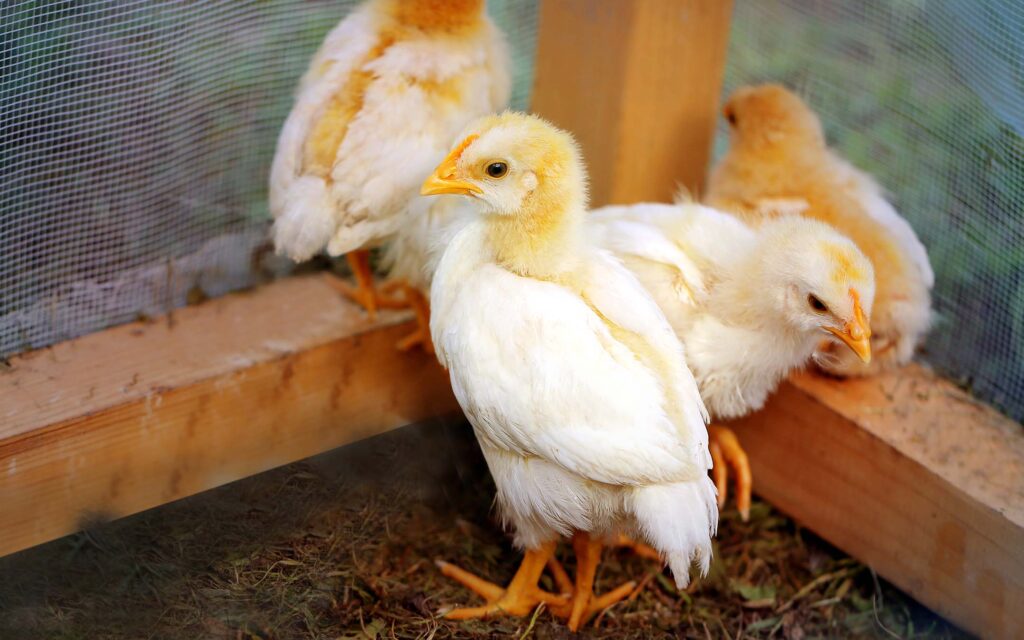
Chickens are great fun to watch, so it’s a great idea to position the coup close to a window so you can enjoy their daily antics and adventures. But aside from your entertainment, it’s important to consider these important questions:
- Are there local rules about where the coop can be built?
- Is the area protected strong sun, wind, predators, loud noises and other stressors?
- Is the spot flat, with good drainage?
- Does the coop location provide both sun and shade for your birds to enjoy?
- Is the location convenient and close to utilities such as water and power to ensure it’s as easy for you as possible to manage things like feed, water and cleaning out?
9 weeks to maturity
By the time your birds reach about 9 weeks of age they are really ready to start to spread their wings (metaphorically speaking!) and will start to explore your backyard during the day time while they return to the security of their coup at night.
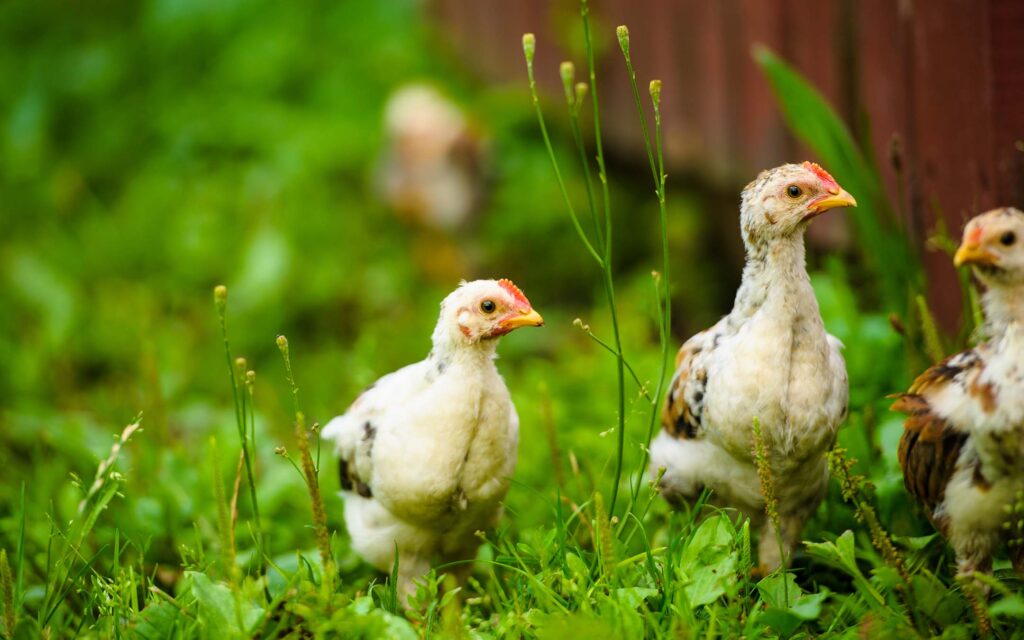
As your birds get braver, it is a good idea to train them to return to the coop using treats and vocal cues, so you can get them inside when you need to.
Helpful hint – Put a light on in the coup when it’s time for the chickens to return, it’ll help draw them in when training.
Maintaining a chicken friendly back yard
Chickens are a great way to help control insects, slugs and snails and weeds, while providing natural fertilizer for your garden. Be aware, however, that their foraging isn’t limited to the plants you don’t like, so protect your garden and flower beds with fencing. Be sure to maintain your fences throughout the year to keep your birds safe from predators and also from wandering tendencies.
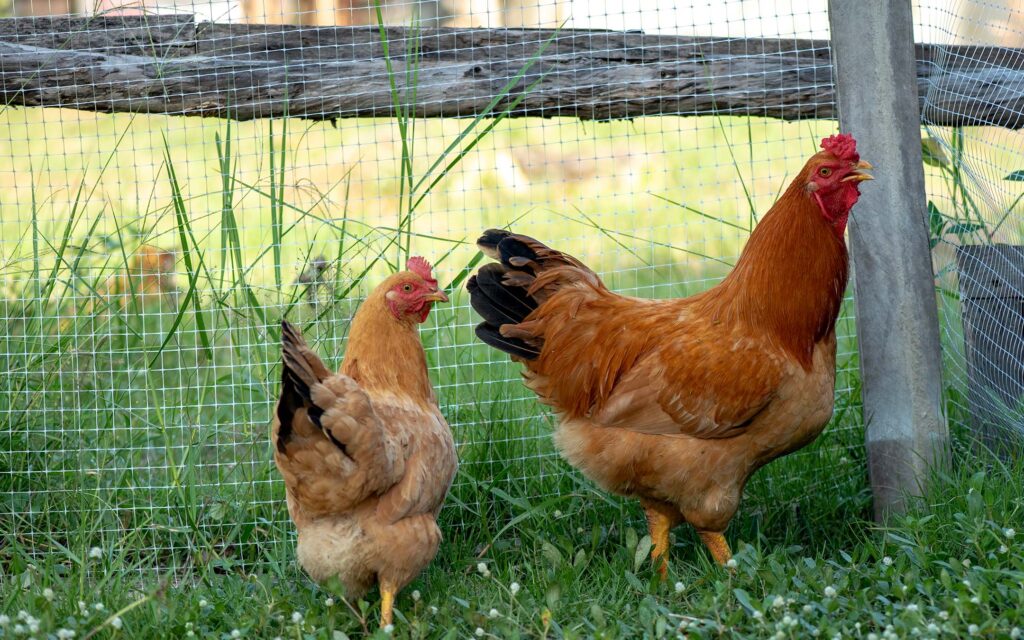
An essential addition to any chicken-friendly back yard is a dust bath, which can help to prevent external parasites such as mites and lice. An easy way to create one is to find a container at least 12″ deep, 15″ wide and 24″ long and fill it with an equal blend of sand, wood ash and natural soil. Your chickens will be in dirt-bath heaven!
Your first eggs – 18 weeks
Many people new to keeping chickens don’t realise that a rooster is not necessary for egg production. So, if you (and your neighbours) would like a quieter life, consider keeping your flock rooster free!
Over the lifetime of your hens, you can expect each bird to lay approximately 580 eggs, with up to 250 eggs per year laid during her most productive years. Good nesting boxes are essential, with at least one 1-foot cube nest box located up off the floor for every four hens, lined with a thick layer of straw or other bedding to cushion the eggs and keep them clean and unbroken.
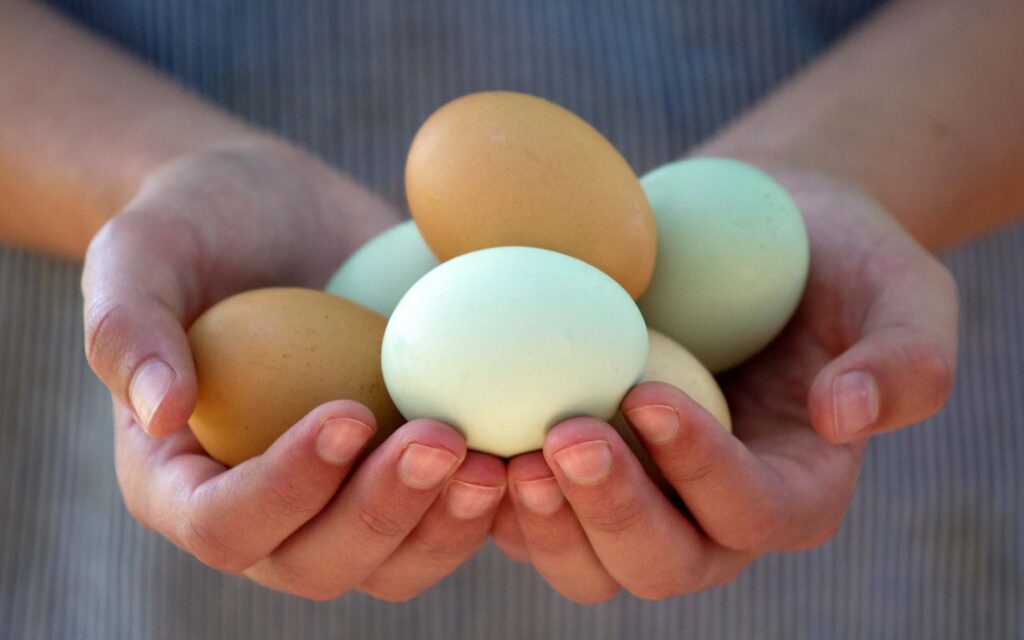
Once your hens have reached egg laying age they will not only provide you with hours of fun and entertainment, but will also hopefully provide a plentiful supply of delicious fresh eggs. From here you will need to ensure their continued good health with a constant supply of fresh water, good nutrition, a clean environment and good health care practices.
If you’re already underway on your backyard chicken journey, what has been your favorite thing about raising chickens so far? And what have you found most challenging? Please do share your experiences in the comments below.
Check out our handy booklet – Clutch – The Essentials available as an online brochure or downloadable PDF with lots of great information on how to raise healthy, happy chickens.




